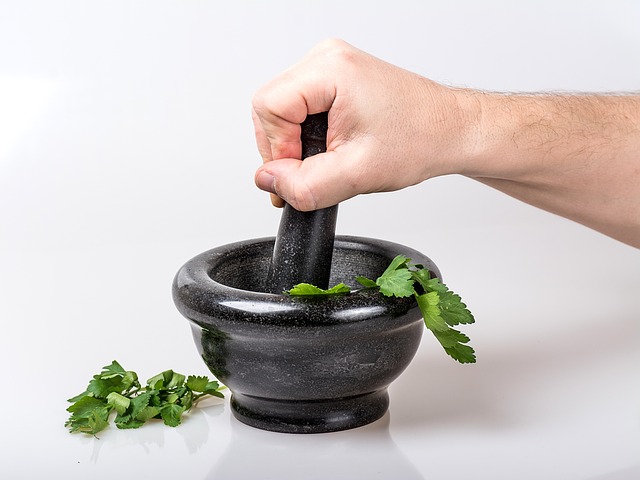- Tampa Natural Care111 South MacDill Avenue
Tampa, Florida 33609(813) 413-7181 Clinic Hours
Mon10am - 7pmWed10am - 7pmThu10am - 7pmFri10am - 7pmBy Appointment Only
- Testimonials
From FaceBook: Dr. Ken is one of the handful of doctors I have met that genuinely care about their patients. My acupuncture treatments with him improved my overall well being and the herbal supplement he gave me has drastically improved my complexion. Dr. Ken is very knowledgeable but mostly importantly, he is very passionate about his practice.
From FaceBook: My first acupuncture treatment was with Dr. Ken and I couldn’t have been more impressed! I was a little nervous as it was my first time trying it, but I was very happy with the outcome. I have since had several more treatments with Dr. Ken and would recommend him to everyone!
From FaceBook: Dr. Ken’s level of service, knowledge and overall experience is unparalleled. From my very first visit, he demonstrated his care and concern for my well-being, and has continued to provide excellent treatment. Highly recommended!
From FaceBook: I have been going to Dr. Ken on a weekly basis for my migraines and overall health and there’s has been a dramatic improvement. He is extremely thoughtful and caring.
From FaceBook: Dr Ken has helped me with managing pain from a torn meniscus for several months now and I am able to function normally and even maintain my walking exercise regimen to some extent. Dr Ken is AWESOME!! I have several friends and relatives who swear by acupuncture and I’m so glad I tried it!!
-
Acupuncture
All About Moxibustion
Traditional Chinese Medicine is a medical system that incorporates numerous methods for treating disease and illness. One of the tools found in the toolbox of the TCM practitioner is known as moxibustion.

Moxibustion is a technique that involves the burning of mugwort, known as moxa, which is an herb that facilitates healing. The purpose of moxibustion is to stimulate the flow of Qi (pronounced “chee”), strengthen the blood and maintain general health. Qi is translated as life energy. There are two types of moxibustion, direct and indirect. Direct moxibustion uses moxa shaped into a small cone and is placed on top of an acupuncture point and burned. This type of moxibustion has two subcategories, scarring and non-scarring. Scarring moxa burns until it distinguishes on its own. This may lead to localized scarring and blisters. Non-scarring moxa allows for the moxa to be placed on the acupuncture point, lit, extinguished and removed before it burns the skin. continue reading
Heart Afire: The Fire Element
The organs in Chinese medicine are more than just a physical representation. The organs include not only their physiological function, but also their mental, emotional, spiritual and elemental qualities that align with nature and the seasons. Let’s explore the heart.
The heart season is summer, and heart is considered the most yang: hot, bountiful and abundant. Yang is what is bright, moving, outward, hot and loud. Yin is what is more inward, still, dark and cooler. The color of the heart is associated with red, the climate is heat, the flavor is bitter and it’s paired organ is the small intestine (many urinary issues are due to “heart fire” heat descending). The sense aligned with heart is the tongue, and the vessels associated with heart are the tissues. The heart sound is laughing, and the emotion is joy. The heart houses what is known as the shen, which is the mind and spirit. continue reading
Valentine’s Day, TCM and Heart Health
 Every February men all over the world flock to the local flower shops and jewelry stores in search of the perfect bouquet or piece of jewelry to express their undying love to their significant other. Why? Nobody knows for certain, but there are at least a couple of theories.
Every February men all over the world flock to the local flower shops and jewelry stores in search of the perfect bouquet or piece of jewelry to express their undying love to their significant other. Why? Nobody knows for certain, but there are at least a couple of theories.
One theory is a Catholic priest, Valentine, was imprisoned for helping Christians escape Roman prisons. While he imprisoned himself, Valentine fell in love with a young girl who visited him. Allegedly, before his death, Valentine wrote a letter and signed it, “From your Valentine.” Thus, the first Valentine’s Day card was created, or so it is reported. continue reading
Fighting Flu Season with Acupuncture
 While the flu is actually not a season, we have become programmed to think of it as the months of November through March. On average, the flu hospitalizes thousands every year, especially the young and elderly. There are also a number of deaths related to the flu, mostly due to people already having compromised immune systems.
While the flu is actually not a season, we have become programmed to think of it as the months of November through March. On average, the flu hospitalizes thousands every year, especially the young and elderly. There are also a number of deaths related to the flu, mostly due to people already having compromised immune systems.
The flu, also known as influenza, is a highly contagious respiratory infection that is caused by a number of viruses. To date, there are approximately 26 to 30 different known strains of the flu virus. This is one of the reasons the flu vaccine has only mild efficacy. The flu vaccine itself, typically only covers five to seven strains of the flu. Symptoms of the flu include fever, coughing, a sore throat, fatigue, muscle aches, pains, runny nose and watery eyes. continue reading
Meridian Point for Winter: Large Intestine 4
Large Intestine 4 is one of the most important and influential points in the entire body. The Chinese name for Large Intestine 4 is “He Gu” meaning union valley or converging valley. The point is located on the hand in the web between the thumb and index finger, also described as the depression where the index finger and thumb bones part. This area of the hand is often described as “valley like” hence the name converging valley.
The large intestine has many important functions in the body. Connected to the Western medicine function of the large Intestine, it is vital in digestion and bowel regulation, but it also has many functions above and beyond that in Chinese medicine. The large intestine is associated with the emotions of sadness and grief, it can help build immunity as it works as a paired channel to the lung meridian and has a big effect of the flow of Qi and blood in the body. continue reading
